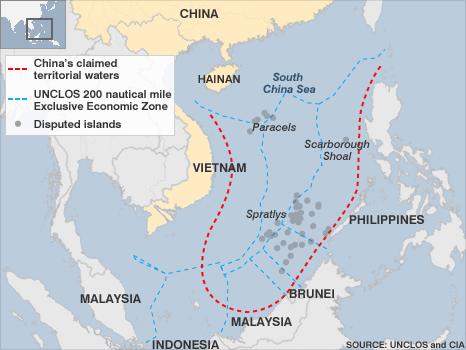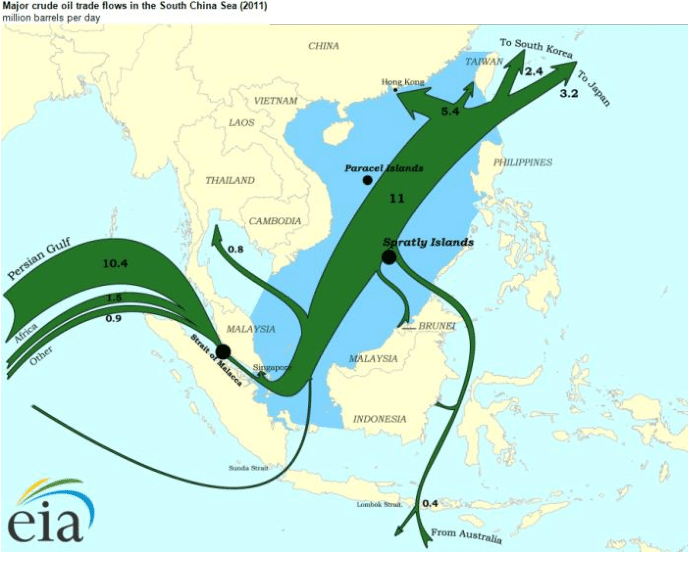Taiwan has been in the news often of late, specifically the issue of whether or not the Chinese Communist Party is intending to invade the country. As background, the island nation of Taiwan, roughly 100 miles from the coast of mainland China, was formed after the Chinese Civil War ended in 1949. The Nationalist Chinese forces of Chiang Kai-shek were defeated by the Chinese Communist forces of Moa Zedong and fled to the island to escape. Since that time, after a long period of martial law, Taiwan has developed into a democratic country. Mainland China has remained as a Communist dictatorship with a period of relative freedom after the death of Moa in 1976 to the present period of increasingly authoritarian rule with the ascension of Xi Jinping to supreme leader in 2013.
Mainland China actively claims Taiwan as a renegade province. Taiwan used to assert a claim to be the rightful ruler of all of China, including Mainland China, but has not actively asserted that claim for decades. As Communist China does not have freedom of speech or of the press, determining the attitude of the citizens of Mainland China toward the citizens of Taiwan is virtually impossible. By all accounts, though, the citizens of Taiwan do not want to be “reunified” under the dictatorship of the Chinese Communist Party, whether by force or not. Presently, Mainland China has a population of about 1.4 billion and Taiwan has a population of about 23.4 million. Both are overwhelmingly ethnic Han Chinese.
As stated before, the growing tension of late about whether or not China is going to invade Taiwan to force it to “reunify” with the mainland has brought about much speculation. This speculation has centered first and foremost on whether a Communist attack is imminent and second on what the United States should do in anticipation for a possible attack and if an attack takes place how the United States should react.
There are many good reasons ethically, politically, and strategically to defend Taiwan if attacked. First and foremost, Taiwan is a democracy. The leaders of Taiwan are elected by popular vote. The Taiwanese enjoy a degree of freedom of speech, and other basic human rights totally absent in China. The United States should be about promoting democracy throughout the world and assisting democratic countries threatened by authoritarian dictatorships.
Second, Taiwan is one of a number of countries encircling China that have become more and more concerned about the increasingly belligerent and aggressive stance of China. India, Vietnam, the Philippines, Japan, and South Korea are among the countries near China in addition to Taiwan that have historically had contentious relations with China and/or are currently involved in disputes with her. Indonesia, Malaysia, and most notably Australia are other nearby neighbors who have had recent disputes with China. Taiwan falling to China will almost certainly not placate the Chinese Communist Party, but almost certainly will cause China to become even more arrogant, aggressive and belligerent in their dealings with neighbors.
Even if the United States totally ignores the ethical, political, and strategic reasons to defendant China, there are two very compelling economic reasons to guard against a Chinese invasion of Taiwan. First, a Communist Chinese invasion of China will almost certainly cause a serious disruption of transit across the South China Sea. Second, Taiwan is one of the world’s largest microchip manufacturers and a Chinese invasion of Taiwan will undoubtedly cause a substantial disruption in the manufacture and shipment of Taiwanese microchips.
First, China claims a huge portion of the South China Sea as it’s territorial waters, claims that neither international maritime law nor China’s neighbors accept. China claims as her own territory waters hundreds of miles from Mainland China, up to a line right up against Vietnam, Malaysia, Brunei, and the Philippines. China’s claims of sovereignty are based in part on disputed and dubious claims to largely uninhabited islands in the South China Sea, some of these islands either manmade or enlarged by China. The map below shows the extent of China’s claims:

A sizable proportion of the world’s trade in oil passes through the South China Sea, as the map below shows:

Even more importantly than just oil, a large proportion of the world’s maritime global trade in general transits through the South China Sea. Estimates I found vary between 20% to 60% of world maritime trade by volume transit through the South China Sea. Even at the lower estimate, a conflict in the South China Sea, which an invasion by China of Taiwan would most certainly cause, will inevitably restrict, if not completely stop, trade through the South China Sea with a resultant heavy impact upon the world’s economy.
In addition to trade in general and specifically in oil that would likely be disrupted, trade in a very important essential component of most of the world’s advanced technology will certainly be disrupted. That component is microchips. Microchips are in everything from modern cars, communications equipment like smartphones, medical equipment like MRI’s, industrial robots, and advanced military technology. Taiwan, despite its population of only 23.4 million, is home to one of the world’s most important and valuable microchip manufacturers, TSMC, or Taiwan Semiconductor. Taiwan is also home to other companies vital in advanced technology.
The world has seen recently what happens when there is a shortage of microchips. The shortage this year led to a substantial slowdown in the production of automobiles. An invasion by China of Taiwan will severely disrupt the supply of the most advanced microchips for years to come. Even if in time TSMC’s factories resume operations, those factories could be under the control of the Chinese Communist Party. In addition, an invasion of Taiwan would almost certainly disrupt production of microchips in another neighbor, South Korea, home to another large microchip manufacturer, Samsung.
When Nazi Germany and the Soviet Union invaded Poland, cutting the country in half and murdering tens of thousands of Poles, these invasions caused concern through Western Europe and in the United States, and ultimately led to World War II. Poland, though, was no where near as important to the economy of the world in general and the United States in particular as Taiwan is today.
The threat of an invasion by Taiwan by Communist China is real. The result will not be on par with Russia invading the Crimea. The economic devastation caused by such an invasion is grossly underappreciated. Even under the very best possible scenarios, meaning the conflict does not spread beyond China and Taiwan, the effect upon the people of the United States will not be minimal or of short duration. We are all endangered by the Chinese Communist Party’s belligerence towards Taiwan and neighboring countries.
The United States, and the World, need to stand firm.